Η ινομυαλγία είναι ένα σύνδρομο που χαρακτηρίζεται από διάχυτο μυοσκελετικό πόνο, διάχυτη ευαισθησία αλλά και άλλα γενικά συμπτώματα όπως διαταραχή του ύπνου και του συναισθήματος. Η λέξη είναι σύνθετη από το ινο- (ινώδης ιστός) και -μυαλγία (πόνος στους μυς).
Χαρακτηρίζεται ως σύνδρομο και όχι σαν νόσος. Νόσος είναι μια ιατρική κατάσταση με ειδική αιτία ή αιτίες και αναγνωρίσιμα σημεία και συμπτώματα. Αντίθετα, σύνδρομο χαρακτηρίζεται ένα σύνολο συμπτωμάτων και σημείων καθώς και ιατρικών προβλημάτων που συμβαίνουν μαζί, αλλά δεν έχουν συγκεκριμένη αναγνωρίσιμη αιτία. Παρά το ότι σχετίζεται με τα ρευματικά νοσήματα, δεν είναι αμιγώς αρθρίτιδα
διότι δεν παρατηρείται φλεγμονή ή βλάβη στις αρθρώσεις. Ωστόσο, μπορεί
να προκαλέσει έντονο πόνο και κόπωση και να διαταράξει την
καθημερινότητα ενός ατόμου.
- Ο πόνος της ινομυαλγίας περιγράφεται ως συνεχής, βαθύς πόνος από τους μύες. Παρατηρείται σε όλο το σώμα, αριστερά και δεξιά, πάνω και κάτω από τη μέση. Ο πόνος και η δυσκαμψία είναι πιο έντονα το πρωί μετά την έγερση. Μπορεί να υπάρχουν και νευρολογικά συμπτώματα όπως τσιμπήματα, μουδιάσματα, «βελονιάσματα» που επιδεινώνουν το αίσθημα της δυσφορίας. Υπάρχει επιπλέον πόνος όταν ασκείται πίεση σε συγκεκριμένες περιοχές του σώματος, τα λεγόμενα «ευαίσθητα σημεία». Αυτά περιγράφονται σε γενικές γραμμές στο παρακάτω σχήμα.
 - Κόπωση. Είναι πολύ πιο έντονη από την κόπωση μιας
κουραστικής μέρας ή μετά από μια νύχτα χωρίς ύπνο. Η κόπωση της
ινομυαλγίας βιώνεται ως «εξοντωτική» που μπορεί να επηρεάζει τις
εργασιακές, κοινωνικές, προσωπικές ή εκπαιδευτικές δραστηριότητες.
Ταυτόχρονα υπάρχει μειωμένη «φυσική ενέργεια».
- Κόπωση. Είναι πολύ πιο έντονη από την κόπωση μιας
κουραστικής μέρας ή μετά από μια νύχτα χωρίς ύπνο. Η κόπωση της
ινομυαλγίας βιώνεται ως «εξοντωτική» που μπορεί να επηρεάζει τις
εργασιακές, κοινωνικές, προσωπικές ή εκπαιδευτικές δραστηριότητες.
Ταυτόχρονα υπάρχει μειωμένη «φυσική ενέργεια».
- Διαταραχές ύπνου. Ο ύπνος δεν είναι βαθύς ούτε αναζωογονητικός και τα άτομα διαμαρτύρονται ότι δεν ξεκουράζονται έστω κι αν κοιμηθούν αρκετά. Διάφορες έρευνες έχουν εντοπίσει διαταραχές στο στάδιο 4 του βαθέος ύπνου. Ο ύπνος διακόπτεται συνεχώς από ήχους ή «σκέψεις», περιορίζοντας σημαντικά τη διάρκειά του.
- Αλλα συμπτώματα:
o Ευερέθιστο έντερο
o Ευερέθιστη ουροδόχος κύστη
o Πονοκέφαλοι
o Ημικρανίες
o Σύνδρομο ανήσυχων κνημών (ανησυχία των ποδιών τη νύχτα)
o Αδυναμία συγκέντρωσης και μνήμης
o Ξηρότητα στόματος
o Δερματικές ευαισθησίες ή εξανθήματα
o Άγχος, κατάθλιψη
o Πόνος κατά την περίοδο
o Βουητά στα αυτιά, ζάλη
o Μουδιάσματα και καψίματα στα χέρια ή πόδια
Οι περισσότεροι ερευνητές, ωστόσο, συμφωνούν ότι υπάρχει μια διαταραχή στη διαβίβαση των νευρικών ερεθισμάτων στο κεντρικό νευρικό σύστημα. Το αποτέλεσμα είναι ότι τα άτομα αυτά αισθάνονται πολύ πιο έντονο πόνο και πονούν πιο συχνά από άλλα άτομα (υπεραλγησία). Εχουν βρεθεί αυξημένα επίπεδα διεγερτικών νευροδιαβιβαστών (όπως ουσία Ρ, κυτοκίνες κ.ά.) και μειωμένα επίπεδα κατασταλτικών νευροδιαβιβαστών (όπως σεροτονίνη, ενδορφίνες κ.λπ.).
Τα διαθέσιμα ερευνητικά δεδομένα υποδεικνύουν διαταραχή στην «ερμηνεία» των σημάτων στο κεντρικό νευρικό σύστημα που προκαλεί διαταραγμένη αίσθηση του πόνου.
Η διάγνωση καθυστερεί να γίνει, κατά μέσο όρο πέντε χρόνια, λόγω των μη ειδικών συμπτωμάτων. Οι εργαστηριακές εξετάσεις είναι συνήθως φυσιολογικές, αν και τελευταία συνδέεται το σύνδρομο με χαμηλά επίπεδα βιταμίνης στο αίμα.
Συχνά συνυπάρχει με άλλα νοσήματα (όπως ρευματοειδής αρθρίτιδα ή ερυθηματώδης λύκος), τα οποία πρέπει να έχουν αποκλειστεί κατ΄αρχήν.
Για να τεθεί η διάγνωση χρειάζεται να υπάρχει διάχυτος πόνος στο σώμα για τουλάχιστον τρεις μήνες και να είναι επώδυνα τα 11 από τα 18 σημεία της εικόνας. Ωστόσο, τελευταία αμφισβητούνται και αυτά τα σημεία.
Για να είναι πιθανή η διάγνωση χρειάζεται να υπάρχει χρόνια διαταραχή του ύπνου, να υπάρχουν κάποια ψυχικά χαρακτηριστικά (όπως άγχος ή τελειομανία, φοβίες ή κατάθλιψη). Η επιδείνωση της ψυχικής κατάστασης επιδεινώνει τον πόνο και τα συμπτώματα της ινομυαλγίας.
Ο πόνος προκαλείται με μικρά ερεθίσματα και η αντοχή στον πόνο είναι περιορισμένη. Γενικά το νευρικό σύστημα χαρακτηρίζεται από «υπερδιέγερση».
Η καλή επαφή με τον ιατρό είναι σημαντική. Ο γιατρός που μπορεί να ακούσει το πρόβλημα και να δουλέψει μαζί με τον ασθενή συμβάλλει ουσιαστικά στη θεραπεία.
Οι παραδοσιακές θεραπείες (αντιφλεγμονώδη κ.λπ.) συνήθως δεν είναι αποτελεσματικές. Οι ασθενείς συχνά έχουν πάρει μεγάλη ποικιλία τέτοιων φαρμάκων χωρίς να έχουν ουσιαστικά αποτελέσματα. Εναλλακτικές θεραπείες, τεχνικές χαλάρωσης, διατροφή και κυρίως η άσκηση παίζουν σημαντικό ρόλο στη θεραπεία.
Όσον αφορά τη θεραπεία του πόνου, τα αντιφλεγμονώδη συνήθως δεν έχουν αποτέλεσμα. Υπάρχουν φάρμακα για την αντιμετώπιση της ινομυαλγίας με δράση στο νευρικό σύστημα.
Χαμηλές δόσεις ήπιων αντικαταθλιπτικών καθώς και μη-ναρκωτικά παυσίπονα βοηθούν στην ανακούφιση των συμπτωμάτων της ινομυαλγίας όπως τον πόνο και την έλλειψη ύπνου. Σε καταθλιπτικά συμπτώματα ίσως χρειαστούν μεγαλύτερες δόσεις. Τοπικές εγχύσεις αναισθητικού μπορεί να βοηθήσουν σημεία ευαισθησίας.
Σημαντική όμως είναι η εφαρμογή προγράμματος ήπιων ασκήσεων με διατάσεις που βοηθούν τη διατήρηση του μυϊκού τόνου και μειώνουν τον πόνο και τη δυσκαμψία. Οι ασκήσεις πρέπει να γίνονται σε τακτά διαστήματα και μπορεί να είναι κολύμβηση, ποδήλατο, περπάτημα και υδροαεροβική.
Όσον αφορά τη διαχείριση του ύπνου, ο καλός ύπνος είναι απόλυτα αναγκαίος και επιτυγχάνεται με διάφορες μεθόδους:
- Το να πηγαίνει κανείς νωρίς για ύπνο και να σηκώνεται σταθερή ώρα, είτε κάθε μέρα, είτε στις διακοπές, βοηθά στην ομαλοποίησή του.
- Το περιβάλλον πρέπει να είναι ήσυχο, με άνετη θερμοκρασία και καλό στρώμα.
- Πρέπει να αποφεύγεται η ζάχαρη, η καφεΐνη και το αλκοόλ πριν τον ύπνο.
- Η άσκηση πρέπει να γίνεται νωρίτερα την ημέρα –τουλάχιστον 3 ώρες πριν τον ύπνο– σε τακτά και σταθερά διαστήματα.
- Πρέπει να αποφεύγεται ο ύπνος με ανοιχτή τηλεόραση ή άλλες ηλεκτρονικές συσκευές.
- Καλό είναι να αποφεύγεται ο ύπνος στη διάρκεια της ημέρας. Αν είναι αναγκαίος καλύτερα να μην υπερβαίνει τη μία ώρα και μετά πρέπει να υπάρχει πρόγραμμα ασκήσεων.
- Ασκήσεις χαλάρωσης πριν τον ύπνο βοηθούν σημαντικά. Μουσική ή ζεστό μπάνιο πριν τον ύπνο βοηθούν στους πόνους και τον ύπνο.
Η συναισθηματική υποστήριξη και η επικοινωνία με την οικογένεια και τους φίλους είναι σημαντικά υποβοηθητική. Οργανωμένες ομάδες ή ατομική θεραπεία μπορεί να είναι αναγκαία. Βασική προϋπόθεση είναι η γνώση και κατανόηση του προβλήματος και του συνδρόμου από τον ασθενή.
Η αποφυγή υπερέκθεσης σε στρεσογόνα ερεθίσματα είναι επίσης σημαντική. Χρειάζεται οργάνωση του προσωπικού χρόνου για χαλάρωση και μια σταθερή ρουτίνα ενεργειών. Οι λειτουργίες πρέπει να είναι σταθερές στις καλές και στις «κακές» μέρες.
Άλλες θεραπείες, όπως φυσικοθεραπεία, θεραπευτικές χειρομαλάξεις, βελονισμός, υδροθεραπείες, ήπια αεροβική γυμναστική, γιόγκα και ασκήσεις tai-chi μπορεί να είναι ιδιαίτερα βοηθητικά. Συνδυάζουν την τόνωση των μυών με τη χαλάρωση και σταδιακά έχουν σημαντική βελτίωση στον πόνο.
Ασκήσεις χαλάρωσης, αναπνευστικές ασκήσεις, αρωματοθεραπεία, διατροφικά συμπληρώματα και βότανα μπορεί να έχουν εξίσου καλά αποτελέσματα. Νοητικές ασκήσεις για την αντιμετώπιση της γνωστικής δυσλειτουργίας (έλλειψη συγκέντρωσης, προβλήματα μνήμης κ.λπ.) είναι ιδιαίτερα χρήσιμες, όπως παιχνίδια μνήμης και προσοχής, γρίφοι και πνευματικές προκλήσεις.
Οι ασθενείς, εκτός από τα συμπτώματά τους, πρέπει να αντιμετωπίσουν και την αδυναμία κατανόησής τους από το περιβάλλον. Είναι αναγκαίο να κατανοήσουν οι ίδιοι τη φύση της πάθησής τους αλλά και οι οικείοι.
Οι ασκήσεις, παρά την κόπωση που αισθάνεται ο ασθενής, πρέπει να είναι σταδιακά αυξανόμενες για να έχουν παυσίπονο αποτέλεσμα.
Τέλος, οι ασθενείς πρέπει να συμμορφώνονται στις οδηγίες των ειδικών της ομάδας που τους φροντίζει, να παίρνουν τα φάρμακα τους σωστά, να κοιμούνται αρκετά, να κάνουν τη σωματική άσκηση που τους συστήνεται, να ακολουθούν υγιεινή διατροφή, να διατηρούν κανονικό βάρος σώματος και να προσαρμόζουν τον τρόπο ζωής και εργασίας τους.
Το Ευρωπαϊκό Κοινοβούλιο, έχοντας υπόψη ότι περίπου 14 εκατομμύρια άνθρωποι στην ΕΕ πάσχουν από ινομυαλγία, έχοντας υπόψη ότι αναγνωρίζεται ως νόσημα από το 1992 από τον Παγκόσμιο Οργανισμό Υγείας και ότι κάνουν περισσότερες επισκέψεις σε ειδικούς, κάνουν περισσότερες εξετάσεις, λαμβάνουν περισσότερες άδειες προξενώντας σημαντική οικονομική επιβάρυνση, έχει αναπτύξει κοινοτική στρατηγική αντιμετώπισης και ευαισθητοποίησης του κοινού και ανάπτυξη ειδικών προγραμμάτων.
ΠΟΙΟΙ ΜΠΟΡΕΙ ΝΑ ΠΑΘΟΥΝ ΙΝΟΜΥΑΛΓΙΑ
Είναι μια πολύ συχνή πάθηση. Μπορεί να προσβληθεί το 3-6% του πληθυσμού. Το 75-90% είναι γυναίκες, ωστόσο μπορεί να προσβληθούν άνδρες ακόμα και παιδιά, αλλά σπανιότερα. Μπορεί να υπάρχει σε μια οικογένεια ή μεταξύ συγγενών. Η διάγνωση γίνεται συνήθως στις ηλικίες 20-50 ετών, αλλά αυξάνει η συχνότητα με την ηλικία.ΣΥΜΠΤΩΜΑΤΑ ΙΝΟΜΥΑΛΓΙΑΣ
- Ο διάχυτος πόνος είναι το κύριο σύμπτωμα. Παράλληλα, πολλοί αισθάνονται κόπωση, υπερευαισθησία στο άγγιγμα, στο φως και τον ήχο και διαταραχές μνήμης.- Ο πόνος της ινομυαλγίας περιγράφεται ως συνεχής, βαθύς πόνος από τους μύες. Παρατηρείται σε όλο το σώμα, αριστερά και δεξιά, πάνω και κάτω από τη μέση. Ο πόνος και η δυσκαμψία είναι πιο έντονα το πρωί μετά την έγερση. Μπορεί να υπάρχουν και νευρολογικά συμπτώματα όπως τσιμπήματα, μουδιάσματα, «βελονιάσματα» που επιδεινώνουν το αίσθημα της δυσφορίας. Υπάρχει επιπλέον πόνος όταν ασκείται πίεση σε συγκεκριμένες περιοχές του σώματος, τα λεγόμενα «ευαίσθητα σημεία». Αυτά περιγράφονται σε γενικές γραμμές στο παρακάτω σχήμα.

- Διαταραχές ύπνου. Ο ύπνος δεν είναι βαθύς ούτε αναζωογονητικός και τα άτομα διαμαρτύρονται ότι δεν ξεκουράζονται έστω κι αν κοιμηθούν αρκετά. Διάφορες έρευνες έχουν εντοπίσει διαταραχές στο στάδιο 4 του βαθέος ύπνου. Ο ύπνος διακόπτεται συνεχώς από ήχους ή «σκέψεις», περιορίζοντας σημαντικά τη διάρκειά του.
- Αλλα συμπτώματα:
o Ευερέθιστο έντερο
o Ευερέθιστη ουροδόχος κύστη
o Πονοκέφαλοι
o Ημικρανίες
o Σύνδρομο ανήσυχων κνημών (ανησυχία των ποδιών τη νύχτα)
o Αδυναμία συγκέντρωσης και μνήμης
o Ξηρότητα στόματος
o Δερματικές ευαισθησίες ή εξανθήματα
o Άγχος, κατάθλιψη
o Πόνος κατά την περίοδο
o Βουητά στα αυτιά, ζάλη
o Μουδιάσματα και καψίματα στα χέρια ή πόδια
ΤΙ ΠΡΟΚΑΛΕΙ ΤΗΝ ΙΝΟΜΥΑΛΓΙΑ
Τα αίτια είναι άγνωστα. Πιθανόν ευθύνονται αρκετοί παράγοντες. Μπορεί ένα τραύμα ή συναισθηματικό στρες ή ακόμα μια νόσος (συνδυάζεται με ρευματοειδή αρθρίτιδα ή άλλα νοσήματα). Αρκετοί ερευνητές πιθανολογούν γονιδιακή αιτία λόγω της ανεύρεσης ατόμων με ινομυαλγία σε μια οικογένεια.Οι περισσότεροι ερευνητές, ωστόσο, συμφωνούν ότι υπάρχει μια διαταραχή στη διαβίβαση των νευρικών ερεθισμάτων στο κεντρικό νευρικό σύστημα. Το αποτέλεσμα είναι ότι τα άτομα αυτά αισθάνονται πολύ πιο έντονο πόνο και πονούν πιο συχνά από άλλα άτομα (υπεραλγησία). Εχουν βρεθεί αυξημένα επίπεδα διεγερτικών νευροδιαβιβαστών (όπως ουσία Ρ, κυτοκίνες κ.ά.) και μειωμένα επίπεδα κατασταλτικών νευροδιαβιβαστών (όπως σεροτονίνη, ενδορφίνες κ.λπ.).
Τα διαθέσιμα ερευνητικά δεδομένα υποδεικνύουν διαταραχή στην «ερμηνεία» των σημάτων στο κεντρικό νευρικό σύστημα που προκαλεί διαταραγμένη αίσθηση του πόνου.
ΠΩΣ ΓΙΝΕΤΑΙ Η ΔΙΑΓΝΩΣΗ ΤΗΣ ΙΝΟΜΥΑΛΓΙΑΣ
Δεν υπάρχουν ειδικές εργαστηριακές εξετάσεις για την ινομυαλγία. Η διάγνωση γίνεται από το ιστορικό, τα συμπτώματα και την κλινική εξέταση. Η ανεύρεση των «σημείων ευαισθησίας» όπως φαίνεται στο παρακάτω σχήμα, συνηγορεί υπέρ της διάγνωσης.Η διάγνωση καθυστερεί να γίνει, κατά μέσο όρο πέντε χρόνια, λόγω των μη ειδικών συμπτωμάτων. Οι εργαστηριακές εξετάσεις είναι συνήθως φυσιολογικές, αν και τελευταία συνδέεται το σύνδρομο με χαμηλά επίπεδα βιταμίνης στο αίμα.
Συχνά συνυπάρχει με άλλα νοσήματα (όπως ρευματοειδής αρθρίτιδα ή ερυθηματώδης λύκος), τα οποία πρέπει να έχουν αποκλειστεί κατ΄αρχήν.
Για να τεθεί η διάγνωση χρειάζεται να υπάρχει διάχυτος πόνος στο σώμα για τουλάχιστον τρεις μήνες και να είναι επώδυνα τα 11 από τα 18 σημεία της εικόνας. Ωστόσο, τελευταία αμφισβητούνται και αυτά τα σημεία.
Για να είναι πιθανή η διάγνωση χρειάζεται να υπάρχει χρόνια διαταραχή του ύπνου, να υπάρχουν κάποια ψυχικά χαρακτηριστικά (όπως άγχος ή τελειομανία, φοβίες ή κατάθλιψη). Η επιδείνωση της ψυχικής κατάστασης επιδεινώνει τον πόνο και τα συμπτώματα της ινομυαλγίας.
Ο πόνος προκαλείται με μικρά ερεθίσματα και η αντοχή στον πόνο είναι περιορισμένη. Γενικά το νευρικό σύστημα χαρακτηρίζεται από «υπερδιέγερση».
Η ΘΕΡΑΠΕΙΑ ΤΗΣ ΙΝΟΜΥΑΛΓΙΑΣ
Το βασικό ζητούμενο είναι να κατανοήσει το άτομο με ινομυαλγία ότι πρέπει να αλλάξει και να διαμορφώσει τον τρόπο ζωής του. Πολλοί αρνούνται να κάνουν ριζικές αλλαγές, ωστόσο η αναγνώριση του προβλήματος και η προσπάθεια αλλαγής κάποιων τομέων της ζωής μπορεί να φέρει σημαντική βελτίωση.Η καλή επαφή με τον ιατρό είναι σημαντική. Ο γιατρός που μπορεί να ακούσει το πρόβλημα και να δουλέψει μαζί με τον ασθενή συμβάλλει ουσιαστικά στη θεραπεία.
Οι παραδοσιακές θεραπείες (αντιφλεγμονώδη κ.λπ.) συνήθως δεν είναι αποτελεσματικές. Οι ασθενείς συχνά έχουν πάρει μεγάλη ποικιλία τέτοιων φαρμάκων χωρίς να έχουν ουσιαστικά αποτελέσματα. Εναλλακτικές θεραπείες, τεχνικές χαλάρωσης, διατροφή και κυρίως η άσκηση παίζουν σημαντικό ρόλο στη θεραπεία.
Όσον αφορά τη θεραπεία του πόνου, τα αντιφλεγμονώδη συνήθως δεν έχουν αποτέλεσμα. Υπάρχουν φάρμακα για την αντιμετώπιση της ινομυαλγίας με δράση στο νευρικό σύστημα.
Χαμηλές δόσεις ήπιων αντικαταθλιπτικών καθώς και μη-ναρκωτικά παυσίπονα βοηθούν στην ανακούφιση των συμπτωμάτων της ινομυαλγίας όπως τον πόνο και την έλλειψη ύπνου. Σε καταθλιπτικά συμπτώματα ίσως χρειαστούν μεγαλύτερες δόσεις. Τοπικές εγχύσεις αναισθητικού μπορεί να βοηθήσουν σημεία ευαισθησίας.
Σημαντική όμως είναι η εφαρμογή προγράμματος ήπιων ασκήσεων με διατάσεις που βοηθούν τη διατήρηση του μυϊκού τόνου και μειώνουν τον πόνο και τη δυσκαμψία. Οι ασκήσεις πρέπει να γίνονται σε τακτά διαστήματα και μπορεί να είναι κολύμβηση, ποδήλατο, περπάτημα και υδροαεροβική.
Όσον αφορά τη διαχείριση του ύπνου, ο καλός ύπνος είναι απόλυτα αναγκαίος και επιτυγχάνεται με διάφορες μεθόδους:
- Το να πηγαίνει κανείς νωρίς για ύπνο και να σηκώνεται σταθερή ώρα, είτε κάθε μέρα, είτε στις διακοπές, βοηθά στην ομαλοποίησή του.
- Το περιβάλλον πρέπει να είναι ήσυχο, με άνετη θερμοκρασία και καλό στρώμα.
- Πρέπει να αποφεύγεται η ζάχαρη, η καφεΐνη και το αλκοόλ πριν τον ύπνο.
- Η άσκηση πρέπει να γίνεται νωρίτερα την ημέρα –τουλάχιστον 3 ώρες πριν τον ύπνο– σε τακτά και σταθερά διαστήματα.
- Πρέπει να αποφεύγεται ο ύπνος με ανοιχτή τηλεόραση ή άλλες ηλεκτρονικές συσκευές.
- Καλό είναι να αποφεύγεται ο ύπνος στη διάρκεια της ημέρας. Αν είναι αναγκαίος καλύτερα να μην υπερβαίνει τη μία ώρα και μετά πρέπει να υπάρχει πρόγραμμα ασκήσεων.
- Ασκήσεις χαλάρωσης πριν τον ύπνο βοηθούν σημαντικά. Μουσική ή ζεστό μπάνιο πριν τον ύπνο βοηθούν στους πόνους και τον ύπνο.
Η συναισθηματική υποστήριξη και η επικοινωνία με την οικογένεια και τους φίλους είναι σημαντικά υποβοηθητική. Οργανωμένες ομάδες ή ατομική θεραπεία μπορεί να είναι αναγκαία. Βασική προϋπόθεση είναι η γνώση και κατανόηση του προβλήματος και του συνδρόμου από τον ασθενή.
Η αποφυγή υπερέκθεσης σε στρεσογόνα ερεθίσματα είναι επίσης σημαντική. Χρειάζεται οργάνωση του προσωπικού χρόνου για χαλάρωση και μια σταθερή ρουτίνα ενεργειών. Οι λειτουργίες πρέπει να είναι σταθερές στις καλές και στις «κακές» μέρες.
Άλλες θεραπείες, όπως φυσικοθεραπεία, θεραπευτικές χειρομαλάξεις, βελονισμός, υδροθεραπείες, ήπια αεροβική γυμναστική, γιόγκα και ασκήσεις tai-chi μπορεί να είναι ιδιαίτερα βοηθητικά. Συνδυάζουν την τόνωση των μυών με τη χαλάρωση και σταδιακά έχουν σημαντική βελτίωση στον πόνο.
Ασκήσεις χαλάρωσης, αναπνευστικές ασκήσεις, αρωματοθεραπεία, διατροφικά συμπληρώματα και βότανα μπορεί να έχουν εξίσου καλά αποτελέσματα. Νοητικές ασκήσεις για την αντιμετώπιση της γνωστικής δυσλειτουργίας (έλλειψη συγκέντρωσης, προβλήματα μνήμης κ.λπ.) είναι ιδιαίτερα χρήσιμες, όπως παιχνίδια μνήμης και προσοχής, γρίφοι και πνευματικές προκλήσεις.
Οι ασθενείς, εκτός από τα συμπτώματά τους, πρέπει να αντιμετωπίσουν και την αδυναμία κατανόησής τους από το περιβάλλον. Είναι αναγκαίο να κατανοήσουν οι ίδιοι τη φύση της πάθησής τους αλλά και οι οικείοι.
Οι ασκήσεις, παρά την κόπωση που αισθάνεται ο ασθενής, πρέπει να είναι σταδιακά αυξανόμενες για να έχουν παυσίπονο αποτέλεσμα.
Τέλος, οι ασθενείς πρέπει να συμμορφώνονται στις οδηγίες των ειδικών της ομάδας που τους φροντίζει, να παίρνουν τα φάρμακα τους σωστά, να κοιμούνται αρκετά, να κάνουν τη σωματική άσκηση που τους συστήνεται, να ακολουθούν υγιεινή διατροφή, να διατηρούν κανονικό βάρος σώματος και να προσαρμόζουν τον τρόπο ζωής και εργασίας τους.
Το Ευρωπαϊκό Κοινοβούλιο, έχοντας υπόψη ότι περίπου 14 εκατομμύρια άνθρωποι στην ΕΕ πάσχουν από ινομυαλγία, έχοντας υπόψη ότι αναγνωρίζεται ως νόσημα από το 1992 από τον Παγκόσμιο Οργανισμό Υγείας και ότι κάνουν περισσότερες επισκέψεις σε ειδικούς, κάνουν περισσότερες εξετάσεις, λαμβάνουν περισσότερες άδειες προξενώντας σημαντική οικονομική επιβάρυνση, έχει αναπτύξει κοινοτική στρατηγική αντιμετώπισης και ευαισθητοποίησης του κοινού και ανάπτυξη ειδικών προγραμμάτων.
A Visual Guide to Fibromyalgia

Does It Get Better?
Many people with fibromyalgia find that their symptoms and quality of their life improve a lot when they find an effective treatment and adjust their behavior and habits. While the condition isn't something you can cure, it doesn't damage your joints, muscles, or internal organs.Sources : WebMD , Σύλλογος Σκελετικής Υγείας «Πεταλούδα»


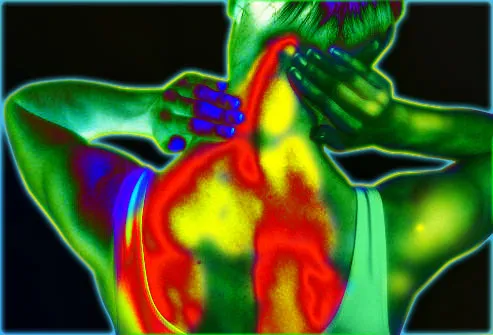

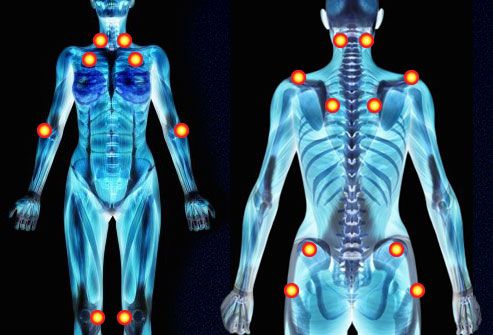

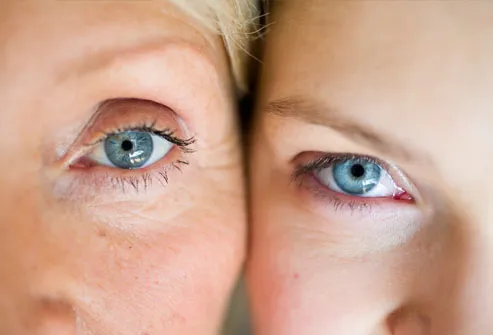

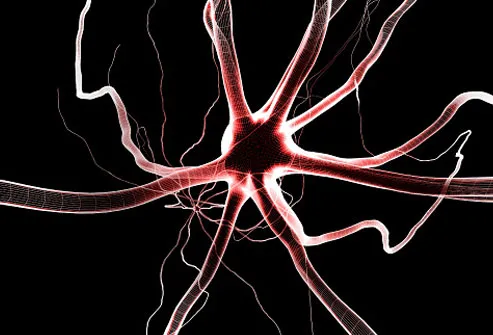












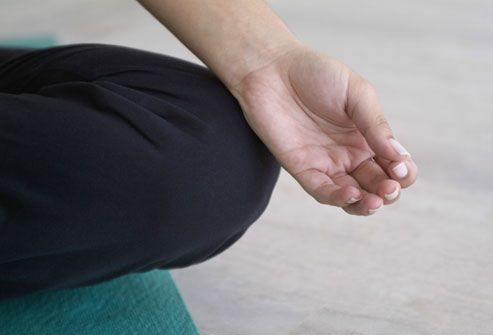










Δεν υπάρχουν σχόλια:
Δημοσίευση σχολίου